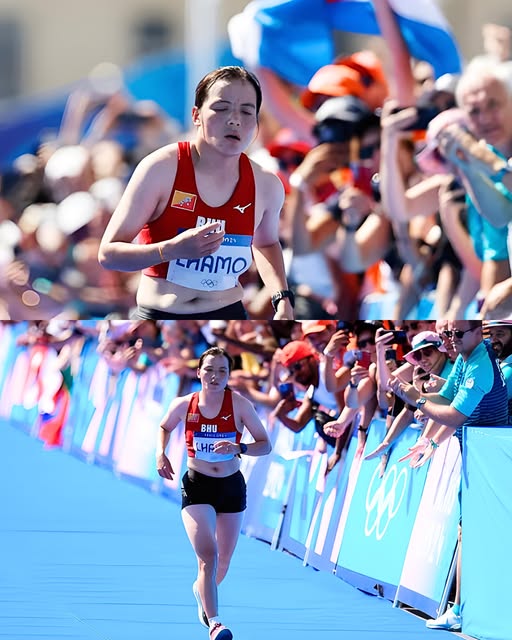
Picture this: the marathon is over, the champions have already claimed their glory, the crowd has begun to settle. And then, slowly but surely, one last runner makes her way into the stadium. Her name is Kinzang Lhamo, a runner from Bhutan, a country tucked away in the Himalayas, thousands of miles from Paris. She wasn’t racing for gold, and she knew it. But what she carried in her steps that day was something far heavier—and far more beautiful—than a medal.
By the time she appeared, the finish line had already seen its victors cross nearly an hour and a half earlier. Most athletes would have crumbled under that weight of time, the spotlight long gone, the race feeling endless. But Kinzang pressed forward, step after grueling step, until she reached the stadium. And to her surprise, what awaited wasn’t silence or pity—it was a standing ovation. Thousands rose to their feet, not because she had won, but because she hadn’t given up.
Her words afterward cut deeper than any highlight reel: “My country did not send me 5,000 miles to start the race; they sent me 5,000 miles to finish the race.” In that moment, the world saw what sport is really about—not records, not medals, but resilience.
She finished in 3:52:59, far from her personal best. But somehow, it didn’t matter. What mattered was that she refused to surrender. What mattered was that she kept running long after the cameras shifted away from the front. And by the time she crossed that line, she had transformed what could’ve been seen as defeat into one of the most inspiring stories of the Paris Games.
Because sometimes, the greatest victories don’t come with medals—they come with courage, applause, and the reminder that finishing, no matter how late, is a triumph in itself.
